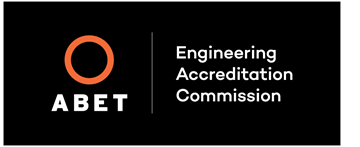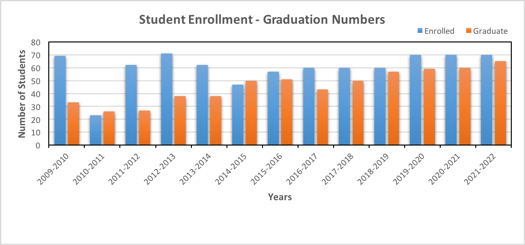
ITU Astronautical Engineering Undergraduate Program: Accredited by the Engineering Accreditation Commission (EAC) of ABET, https://www.abet.org, (Criteria: Astronuatical Engineering).
Related links:
Program ABET Coordinator
Asst. Prof. Demet ÇİLDEN GÜLER
Phone: +90 212 285 3101/135
E-mail: cilden@itu.edu.tr
Mission of ITU Astronautical Engineering Undergraduate Program
The mission of the Astronautical Engineering Department is as follows.
PEOs - Program Educational Objectives
The educational objectives of the Astronautical Engineering undergraduate program are for its graduates to achieve the following career and professional accomplishments in Astronautical Engineering and related engineering and scientific fields:
- To become skilled engineers, firmly grounded in mathematics, physics, and engineering fundamentals, for professional practice or post-baccalaureate studies as their aptitudes and career goals may dictate.
- To conceptualize, design, analyze and test systems and components, with a broad understanding of engineering design principles and applications.
- To develop algorithms and to use modern computational/simulation software in creating new knowledge and practical engineering solutions.
-
To develop as individuals and professionals, communicating effectively, contributing as team members, engaging in life-long learning, behaving in a professional and ethical manner, and functioning capably with people from diverse backgrounds.
SOs – Student Outcomes (1 to 7)
- An ability to identify, formulate, and solve complex engineering problems by applying principles of engineering, science, and mathematics.
- An ability to apply engineering design to produce solutions that meet specified needs with consideration of public health, safety, and welfare, as well as global, cultural, social, environmental, and economic factors.
- An ability to communicate effectively with a range of audiences.
- An ability to recognize ethical and professional responsibilities in engineering situations and make informed judgments, which must consider the impact of engineering solutions in global, economic, environmental, and societal contexts.
- An ability to function effectively on a team whose members together provide leadership, create a collaborative and inclusive environment, establish goals, plan tasks, and meet objectives.
- An ability to develop and conduct appropriate experimentation, analyze and interpret data, and use engineering judgment to draw conclusions.
-
An ability to acquire and apply new knowledge as needed, using appropriate learning strategies.
E&G - Enrollment and Graduation Data
UPDATED: Enrollment and Graduation Data (2011-2020)
